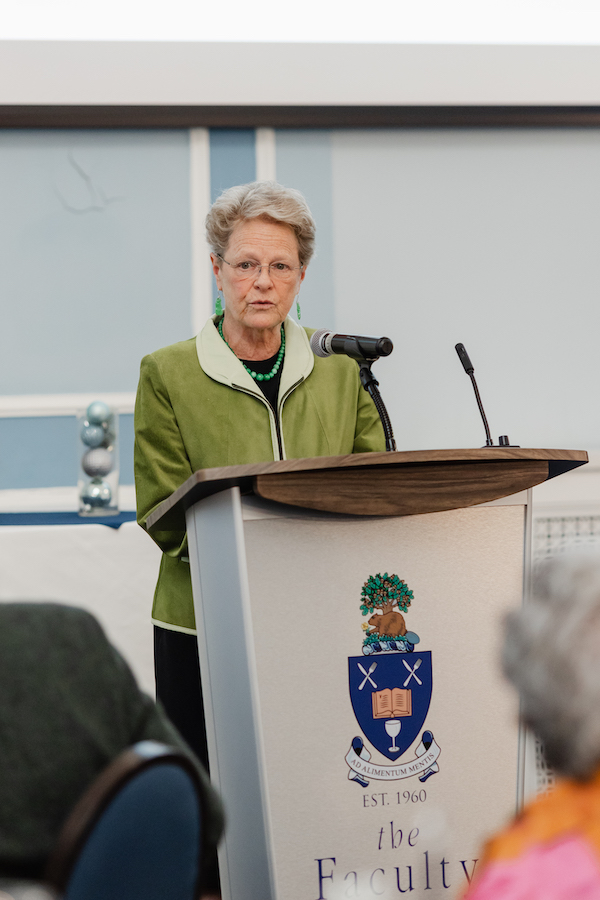By Dr Patricia Brubaker, Professor Emerita, Department of Physiology, University of Toronto
100th Anniversary dinner celebrating the Nobel prize to banting and macleod, November 27, 2023

I am pleased to make a tribute tonight about Charles Best, one of the co-discovers of insulin – I will do my ‘best’. Although I never met him, I have a very personal connection to Dr. Best. First, I am just two degrees of separation from him, having been recruited to the University of Toronto by Mladen Vranic, who was Charles last post-doctoral fellow and my own post-doctoral supervisor. Second, Charles served as the Chair of my home department, Physiology, for a remarkable 36 years. And, last, but not least, I am one of the beneficiaries of the discovery of insulin, having developed Type 1 diabetes when I was 22 years old and, therefore, requiring insulin for life.
Born in 1899 to a country doctor and a musical mother, Charles attended the University of Toronto with express interest in both physiology and medicine. However, once there, he also participated in military training during WWI, became best friends with Clark Noble and met his future wife, Margaret Mahon. Then, as fate would have it, in April 1921, Charles was selected by a coin toss (over Noble) by the Head of Physiology, J.J.R. Macleod, to work with Frederick Banting as his lab assistant.
We have heard much today about the events that occurred over the long hot summer of 1921 and into the fall of 1923, leading to: the purification of insulin and demonstration of its ability to reduce blood sugar levels in animal models; the successful application of insulin in the clinic for the treatment of patients with Type 1 diabetes; and the awarding of the Nobel Prize in Physiology or Medicine to Banting and Macleod who, most appropriately, shared the prize money with Charles Best and James Collip, respectively. However, it was after this period of great excitement that Charles Best came into his own as an independent researcher.
After obtaining his medical degree in 1925, Dr. Best obtained formal research training at the National Institute of Medical Research in the UK. He then returned to the University of Toronto where, at the exceedingly young age of 30, he took over the leadership of, first, the Department of Physiology and then, in 1953, the newly-created Best Institute. Notable amongst many research successes, Dr. Best purified the anticoagulant, heparin, which is now used universally for the prevention of coagulation. He also continued to receive many national and international honours for his research contributions, including induction into the Royal Societies of both Canada and the UK and as a Commander of the Order of the British Empire.
Charles Best died in 1978 but is still remembered as one of the co-discoverers of insulin, a remarkable achievement that continues to be honoured, to this day, by the millions of people world-wide who are alive because of this discovery.
Back to >> Dinner Program and Speeches